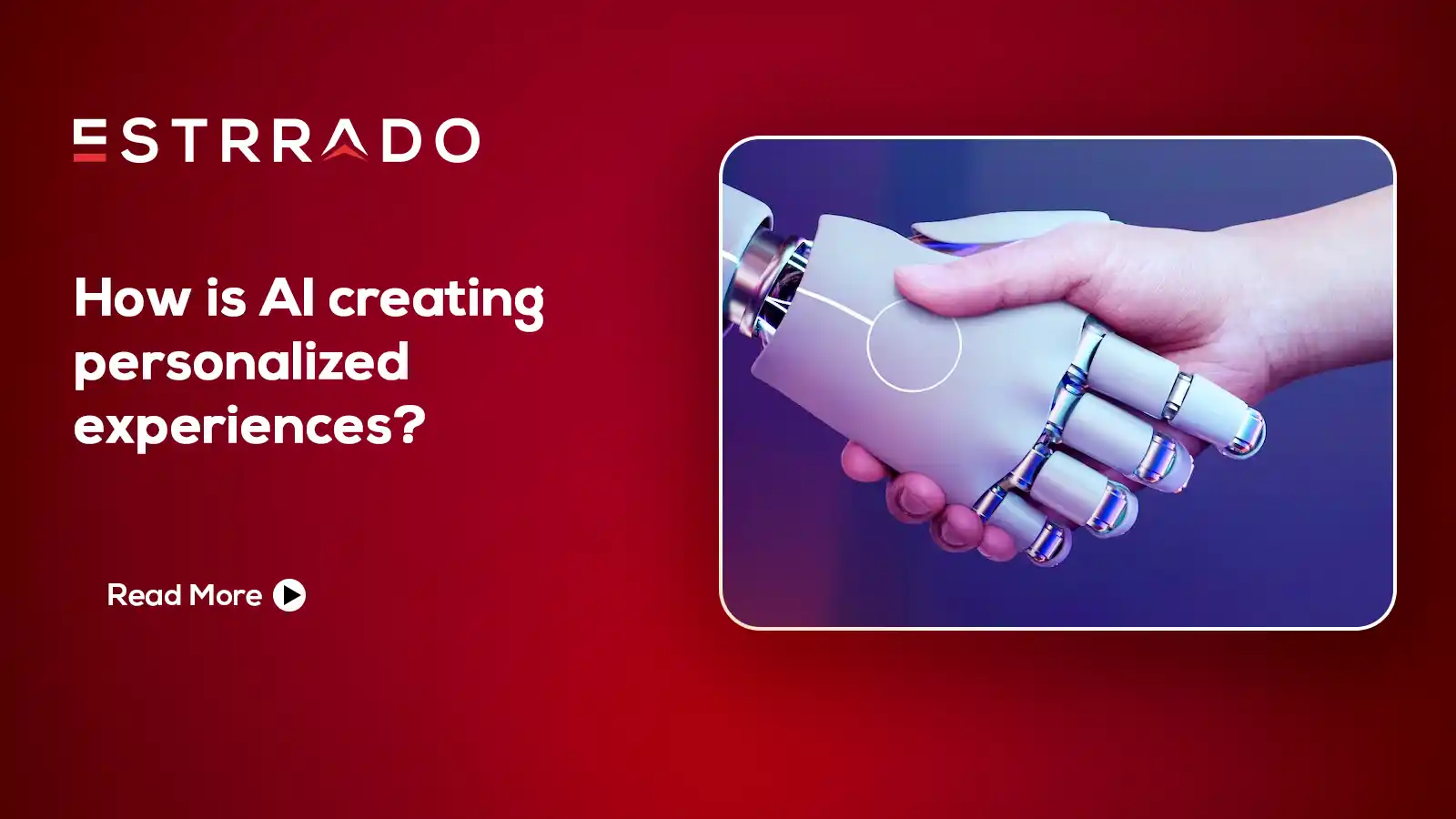Introduction
Imagine walking into a store where the staff already knows your favorite products, a streaming service that curates movies just for you, or a news app that delivers articles perfectly aligned with your interests. This isn’t science fiction; it’s the power of Artificial Intelligence (AI) to create personalized experiences.
But how exactly is AI achieving this level of personalization? Let’s dive into the fascinating world of AI-powered customization in this blog post.
The Magic Formula: Data + Algorithms = Personalization
At the core of AI personalization lies a simple formula: data + algorithms. Here’s how it works:
Data Collection
Every digital interaction you have left a trail: websites you visit, products you buy, searches you make, and even how you scroll through an app. AI systems meticulously gather this data, building a unique profile of your preferences and habits.
Algorithm Analysis
Powerful algorithms then analyze this data, searching for patterns and connections. They identify what you like, dislike, and what interests you the most. Think of them as detectives, piecing together clues to understand you better.
Personalized Magic
Finally, based on these insights, AI conjures up personalized experiences. This could be anything from recommending books you’ll love to showing you ads for clothes you’d wear. It’s like having a personal assistant who anticipates your needs before you even know them!
Examples of AI in Action
The possibilities of AI personalization are vast, and they’re already transforming various industries:
Retail
Online stores use AI to suggest products you might like based on your past purchases and browsing history.
Entertainment
Streaming services like Netflix and Spotify leverage AI to curate personalized movie and music recommendations, ensuring you never run out of content you’ll enjoy.
Education
AI-powered learning platforms adapt to your learning pace and style, creating a personalized learning journey that caters to your strengths and weaknesses.
News & Media
News apps use AI to filter content based on your interests and reading habits, ensuring you see only the news that matters to you.
Benefits and Challenges
While AI personalization offers several advantages, it’s important to consider the challenges:
Privacy Concerns
Sharing large amounts of personal data raises privacy concerns. It’s crucial to choose platforms that are transparent about data usage and offer control over your information.
Algorithmic Bias
AI algorithms can cause biases present in the data they’re trained on. This can lead to unfair or discriminatory outcomes. Ensuring diverse datasets and responsible development is key to reducing this risk.
Filter Bubbles
Personalized experiences can create “filter bubbles” where you’re only exposed to information that confirms your existing views. It’s important to actively seek out diverse perspectives to maintain a well-rounded understanding of the world.
The Future of Personalization
AI personalization is still evolving, but its potential is vast. As AI technology advances and ethical considerations are addressed, we can expect even more sophisticated and personalized experiences in the future. Imagine:
AI-powered assistants
Imagine an AI assistant that anticipates your needs, from booking travel to managing your finances, all tailored to your unique preferences.
Hyper-personalized education
Learning that adapts to your cognitive strengths and weaknesses, creates a truly individualized learning experience.
Immersive entertainment
Imagine stories and games that adapt to your choices and preferences, creating a truly unique and engaging experience.
Conclusion
AI personalization is undoubtedly shaping the future, and while it comes with challenges, it holds immense potential to improve our lives in countless ways. By using the power of AI responsibly and ethically, we can create a future where technology truly caters to our individual needs and preferences, making our lives smoother, more enjoyable, and ultimately, more personalized.
Frequently Asked Questions (FAQs) about AI-powered Personalization
1. Does AI personalization invade my privacy?
It depends. While AI systems use your data to personalize experiences, reputable platforms should be transparent about data usage and offer control over your information. Always check privacy policies and adjust data-sharing settings as needed.
2. Can AI personalize experiences unfairly?
Yes, AI algorithms can perpetuate biases present in the data they’re trained on. This is why responsible development with diverse datasets is crucial. Look for platforms committed to ethical AI practices.
3. Will AI create “filter bubbles” where I only see what I agree with?
Personalized experiences can lead to filter bubbles, but you have control. Actively seek out diverse perspectives and news sources to maintain a well-rounded understanding of the world. Don’t rely solely on personalized recommendations.
4. What are the benefits of AI personalization?
Convenience: Get recommendations you’ll enjoy, saving time and effort.
Relevance: See content and products tailored to your interests, making your online experience more meaningful.
Engagement: Personalized experiences can be more engaging and satisfying, keeping you interested in platforms and services.
5. What’s the future of AI personalization?
Expect more sophisticated and tailored experiences:
AI assistants: Imagine an AI assistant that anticipates your needs, from booking travel to managing finances, all personalized to you.
Hyper-personalized education: Learning that adapts to your cognitive strengths and weaknesses for a truly individualized experience.
Immersive entertainment: Imagine stories and games that adapt to your choices and preferences, creating a unique and engaging experience.








